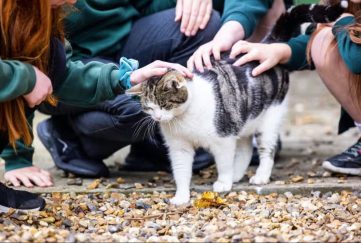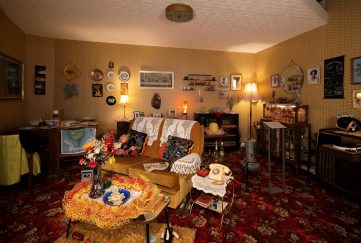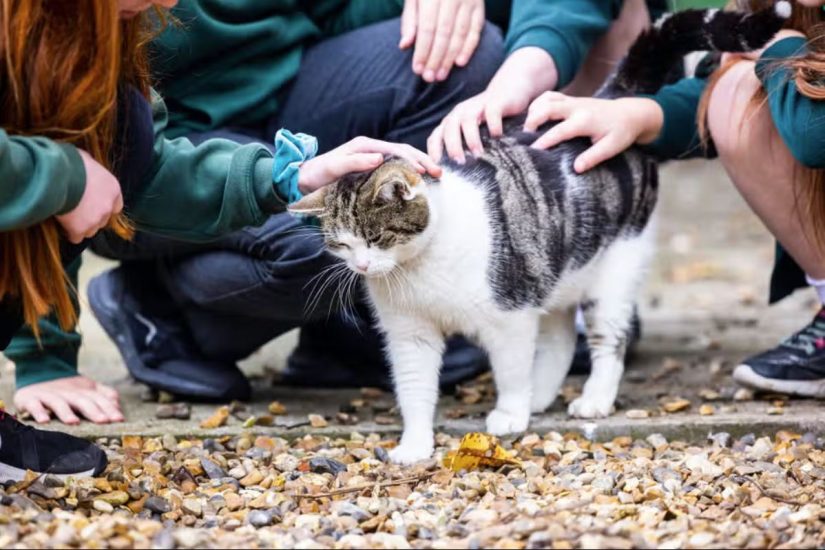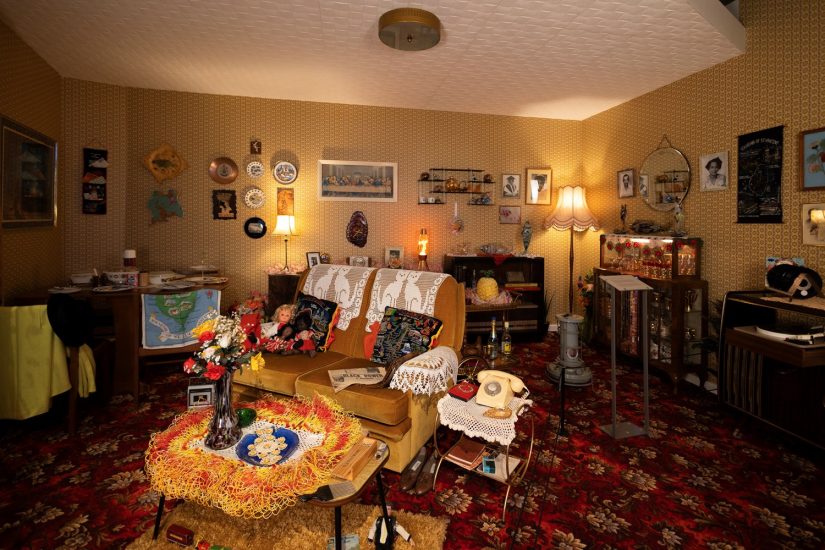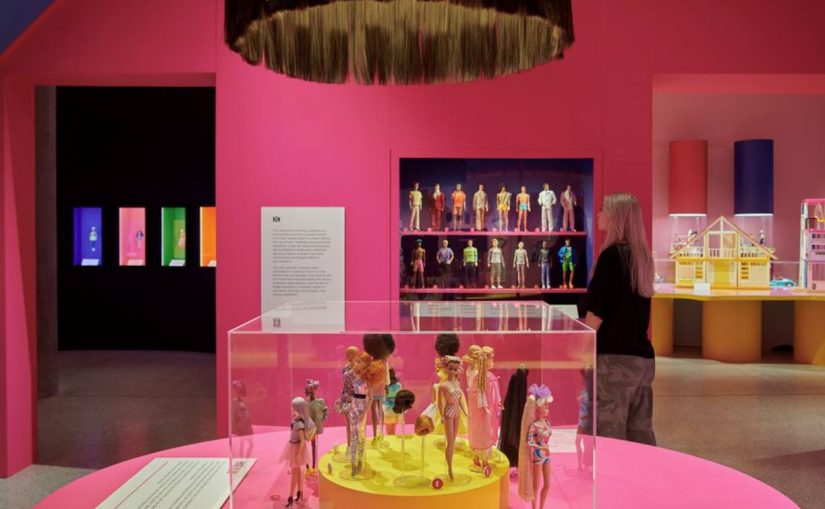“Betty’s Biggest Bargain” Pt I, By E. Everett Green
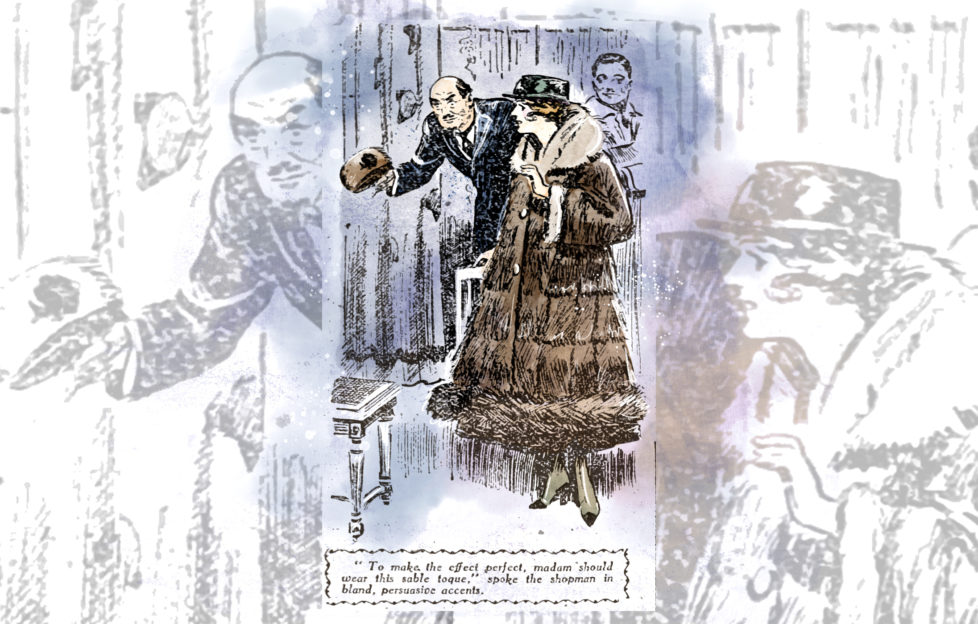
This story, first published in “The People’s Friend”, was subtitled “A Romance Of The January Sales”.
At a time when the magazine carried a number of stories covering WWI, featuring soldiers either at the Front or at home on leave, this story stands out as a little light relief!
This is part one. Part two will appear in next week’s newsletter. Stay tuned!
“Girls, I simply can’t stand it any longer! I absolutely must run up to town before the sales end, and rummage out some of my magnificent bargains!”
Betty’s bright eyes were dancing, as they had a way of doing on very small provocation, which was very creditable of them, for the life which she led as the Cinderella sister of a small suburban home was not one which could be called exhilarating.
Small means, a delicate and depressed mother, two somewhat overbearing elder sisters, who secured for themselves the chiefest portion of such good things as came their way — this was the environment of Betty’s life.
Nevertheless, she kept a brave, bright face; she drudged about the house with a song on her lips and a laugh in her eyes.
Her clever needle was for ever at work upon articles of finery she never wore herself. Truth to tell, Betty’s aim and object in life was to avoid finery, and keep her own small person trim and neat.
Her tweed coats and skirts were fashioned by her own clever fingers, and fitted admirably; she wore plain linen collars and plain silk ties. Chiffons and fallals she made for her sisters, who strove after the reputation of the beauties of their suburban circle, and were deeply engrossed in the task of husband-hunting.
But Betty had never joined in this sport. She had never dreamed of any husband since Jim had gone away to make his fortune, and the great Far West had swallowed him up.
That she might never see him again she had made up her mind to bear; what she could not bear was the thought of setting any one else up in the shrine of her heart, which must be kept forever sacred to him.
“Bargains!” spoke the sisters in a breath; “what sort of bargains do you mean, Betty? Let us see!”
Betty tossed across a number of circulars and sale lists which the morning’s post had brought, then rose and gave herself a little shake.
“I don’t go by lists; I go by my own unerring instinct. I prowl up and down, and my eagle eye marks down the bargain most worth the having.
“I’ve got three pounds saved from my music pupils. Mother has something saved up for sale bargains in the housekeeping purse.
“If you two have anything to speculate with, I’ll bring you back double your money’s worth — or die for it!”
There was rummaging and discussion and excitement for the next half-hour; then forth stepped Betty, purse in hand, importance writ large over all her small, trim person.
A day’s shopping at sale time in London was one of the few delights and excitements of her life. She meant to enjoy herself to the full.
Her errand took her into the great throbbing heart of England’s metropolis, and her spirit leaped up to meet the mighty hum and clangour which told of hidden energies of human beings, vast activities, and the audacities of the world’s greatest mart.
Those shop windows! What stories did they not tell to Betty! What visions did they not conjure up! The sight of the customers thronging through the doors fascinated her. She wanted to read the life-stories written on those stranger faces — some eager and strenuous, some careless and mocking, some pathetically sad, some — but these not many — wearily indifferent.
Then the streets, with that congestion of traffic — those splendid equipages drawn by showy, high-stepping horses — the huge motor cars fitted with undreamed of luxuries — what unimagined wealth must not their owners enjoy!
For a moment Betty stood still, letting her fancy play riot at will. Suppose she were to step into one of those huge waiting motors, give the order to the driver, enter some vast, stylish shop, and order of obsequious shopmen such things as pleased her fancy most! Suppose and suppose—
“Betty!”
She gave a big jump; it was as though a voice out of the mists of the past hailed her — a never-to-be-forgotten voice! But from whence did it come?
With big, startled eyes, Betty gazed about her. A huge, luxuriously appointed motor car was drawing up at the kerb beside which she stood, waiting her chance to cross.
Beneath the peaked cap of the driver two eager blue eyes shone forth. Betty’s heart leaped up; a flood of colour dyed her cheeks; both her hands went out—
“Jim — oh, Jim — can it really, really — be — you?”
No one heeded them in that big crowd. Where is one quite so alone as in a seething mass of eager humanity bent upon its own business?
If Jim did not take her into his arms and hug her, Betty felt as though he had done so. She was enfolded in his personality; he seemed to envelop her with it as with a garment.
All the world receded from the — they were as much alone as though they trod some garden solitude where human footstep had never been before.
What had he told her? What had she said to him? But what did any words matter?
Here he was, back in England safe and sound! What did she care that instead of returning with a fortune he was only a chauffeur of some man of wealth and station?
Not one whit! It was Jim she wanted — her own dear, faithful self!
Better really that he should be poor. They were in the same case now, and, after all, a good berth as a mechanician and driver was not a thing to be despised.
Oh, the joy and glory in Betty’s dancing brown eyes!
“Get in beside me, sweetheart. I must take you off somewhere. We must go where we can talk together in peace.”
“Oh, Jim, how delightful! I have never been in a motor. But are you sure that you have time? And do you think that you may?”
“Eh, what?” queried Jim. “Why did you say ‘may’?”
“I mean, Jim, dear, would your — master — your employer — like you to drive me about in his car? And would it make you late for anything?”
A look of illumination dawned over Jim’s pleasant, strong features.
“Oh, the boss you mean! That’s all right, Betty. He’s not a bad sort of chap. And, as it happens, I’m quite free to-day, and can go and do anything I like. I’ve a few errands to put in; but they’re easily done.
“Jump up by me. I’ve a rug in there you must wrap round your shoulders. You ain’t half warmly enough dressed for motoring — or for an English January, either; but we’ll . . . yes, that’s right. You look stunning in that — like a polar bear come to take a spy round London.
“Oh, Betty, it’s good to have you by my side again! Why did you stop writing to me? I thought you’d forgotten, and that it wasn’t fair to bully you when perhaps there was some other good sort of chap who could make you happy, and do you better than I seemed likely to do.”
“You bad Jim; it was you who stopped writing. I went on till I was ashamed. I’ve got my half of the sixpence, Jim.”
“And I’ve got mine — you bet. I’ve kissed it every night of my life.”
“Oh, Jim! So have I!”
“I never got your letters after I cut adrift and went out to the Far West. Something must have happened, Betty, for I got others all right”
“Oh, Jim; perhaps mother or the girls kept them back. I was ill one winter and I couldn’t post them myself. You know they thought us silly.
“They wanted it broken off. But they need not have done that.”
“Well, little sweetheart, it was rough on us. I might have been tempted to come back just too soon if I’d had such a magnet on the far side of the water.
“As it was, I didn’t care what became of me; if we had to live by sweeping a crossing together, I should not care one little bit!”
“Poor, darling Jim; I only want you. I never cared about money — not really — though some of the things it can buy are very, very nice.
“But I like you as a chauffeur just as well as I should like you as a millionaire. And now that I know you did not forget me, and now that we are together again, I’m so happy that if we had to live by sweeping a crossing, I should not care one little bit!”
He turned a long, steady gaze upon her, and for a moment, beneath the rug, their fingers met and clasped.
“So, you’re prepared to take me ‘for better, for worse’, even though I’ve come back a big failure instead of a big success?”
“Of course I am, Jimmy, darling. I’ll try and make up to you for everything! You don’t know how clever I’ve grown whilst you’ve been away! I can make money go twice as far as anybody else! That’s what I’m up for to-day — bargain-hunting!
“Jimmy, I’m going to take you out to lunch first — yes, really I am. I’m going to be wildly, madly extravagant; and we’re going to lunch like kings upon eighteen-pence apiece —and I’m going to pay!
“You may tip the waiter — which he won’t expect — but I pay! We’ll have soup and fish and omelette (simply delicious), and meat and vegetable and sweets and cheese — and coffee at the end.
“Drive where I tell you, and you shall see! And then you shall see me buy bargains. I’ve done my spying round. After I’m fortified by lunch I start out on the warpath!
“Oh, Jimmy — I’m so happy I don’t know how to hold myself in! If your boss were to come along and get into this car himself, I believe I should hug him on the spot for having engaged you! Jimmy, dear, would you mind?”
“I’d try to bear it,” answered Jim with a grin. “Is this the place? All right; we’ll hope the inside is better than the out!”
It was, but neither of them would have noted had it not been so. What a meal that was! Had ever viands been so daintily cooked or served before? Yet neither could have told the moment afterwards what had been the ingredients of a single dish set before them.
When they got out to the car a surprise awaited Betty, for there was a driver in charge on the front seat, and Jim held open the door of the tonneau for her to enter. She flashed a look of inquiry and astonishment.
“All right, Betty — got a chat I know to come — messenger boy, you know — to drive us. You can’t go about shopping wrapped up in the rug, and you can’t sit outside without it.
“Come along in and talk to me; we’ll be as snug as a bug in a rug — do you remember that’s what we used to call it? Where to? All right; out on the warpath we go. Hunt out your bargains, little Betty, and I’ll do a bit of bargain-hunting myself, in honour of the occasion. One must have a bust now and again!”
To be continued next week . . .
Click here to read more of our fantastic Fiction content.
Click here to delve into our dramatic Daily Serial.


